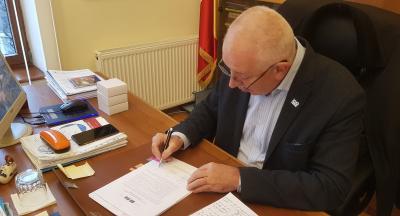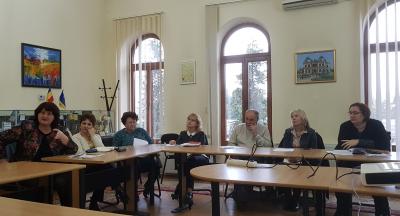Campina
*Disclaimer: The information and views set out in this page do not necessarily reflect the official opinion of the Council of Europe and/or the European Commission. Neither the Council of Europe, the European Commission nor any person acting on their behalf may be held responsible for the use which may be made of the information contained therein.
Câmpina is a located in Prahova County, in the historic region of Wallachia and in the Southern Development Region. It is the second largest town from point of view of population in Prahova County, after Ploiesti (county capital) and is a economic and social centre with an tertiary industrial profile.
The unofficial number of Roma inhabitants is about 2 600.
They are settled in 7 different Roma communities . Five of them in urban marginalized areas, confronted with issues related to integration and with people living at poverty and social exclusion risk: Oborului, Aleea Scarisoarei, Lacul Pestelui, Caramidari-Prundului-Padurii, Mogador.
The two other communities are living in Aleea Scarisoare and Lacul Pestelui and are exposed to land sliding risk and environmental hazards.
The ROMACT Process
ROMACT started in November 2018 with the signature of the Letter of Agreement.
The Municipal Taskforce for Roma Inclusion was created in March 2019.
In July 2019, the Joint Action Plan for Roma Inclusion was adopted by the Local Council.
As of April 2023, ROMACT process is reinforced in Campina and a new agreement was signed.
The Municipal Taskforce for Roma Inclusion was renewed in October 2023.
Trainings provided by ROMACT experts :
Local Authorities (LA):
* Project management (vocational training)
* Social assistance - working procedures for children with migrant parents
* Procedures for hiring a school mediator
Community Action Groups (CAG):
*Creating an NGO
* Defending JAP in front of specialized commission of Local Council
The following measures were taken to solve problems in vulnerable Roma communities:
* Recruitment of a school mediator
* Recruitment of the health mediator
* Garbage collecting platform - Scarisoara community
* Garbage collecting platform - Lacul Pestelui community
* Census & analysis for solving the situation of caravan owners
* Recruitment of the Local Expert for Roma issues
* Current repairs for Technological highschool, A.I.Cuza gymnasya school, B.P.Hasdeu gymnasya school, Kindergarten n°6
* Preparation of technical documentation for construction of 50 social houses (apartments) and rehabilitation of 3 streets
* Asphalting of 4 streets in Roma communities
ROMACT small grants scheme
ROMACT offers small grants scheme to support the efforts of the municipalities and Community Action Groups to respond together to the needs of the most vulnerable and to multiply the good practices across ROMACT municipalities.
Under the scheme of small grants, the following activities were supported by ROMACT in Campina:
Campina City Hall
ROMACT supported the municipality with 5 028,20 € and reached 1500 Roma and non-Roma people. The project provided a COVID19 information campaign and hygiene kits for the most vulnerable families in the community through distribution of masks, disinfectant products, and informative flyers. The municipality also contributed with hot meal services via the local canteens during August and September 2020.
- Access to education during pandemic - White Butterflies Association
ROMACT supported the White Butterflies Association with 4 549,62 €, reaching 344 pupils and 27 teachers. The project targeted students at risk of socio-educational exclusion. School materials and hygiene products were supplied along with an active information campaign on school dropout and social exclusion in the context of the COVID19 pandemic.


